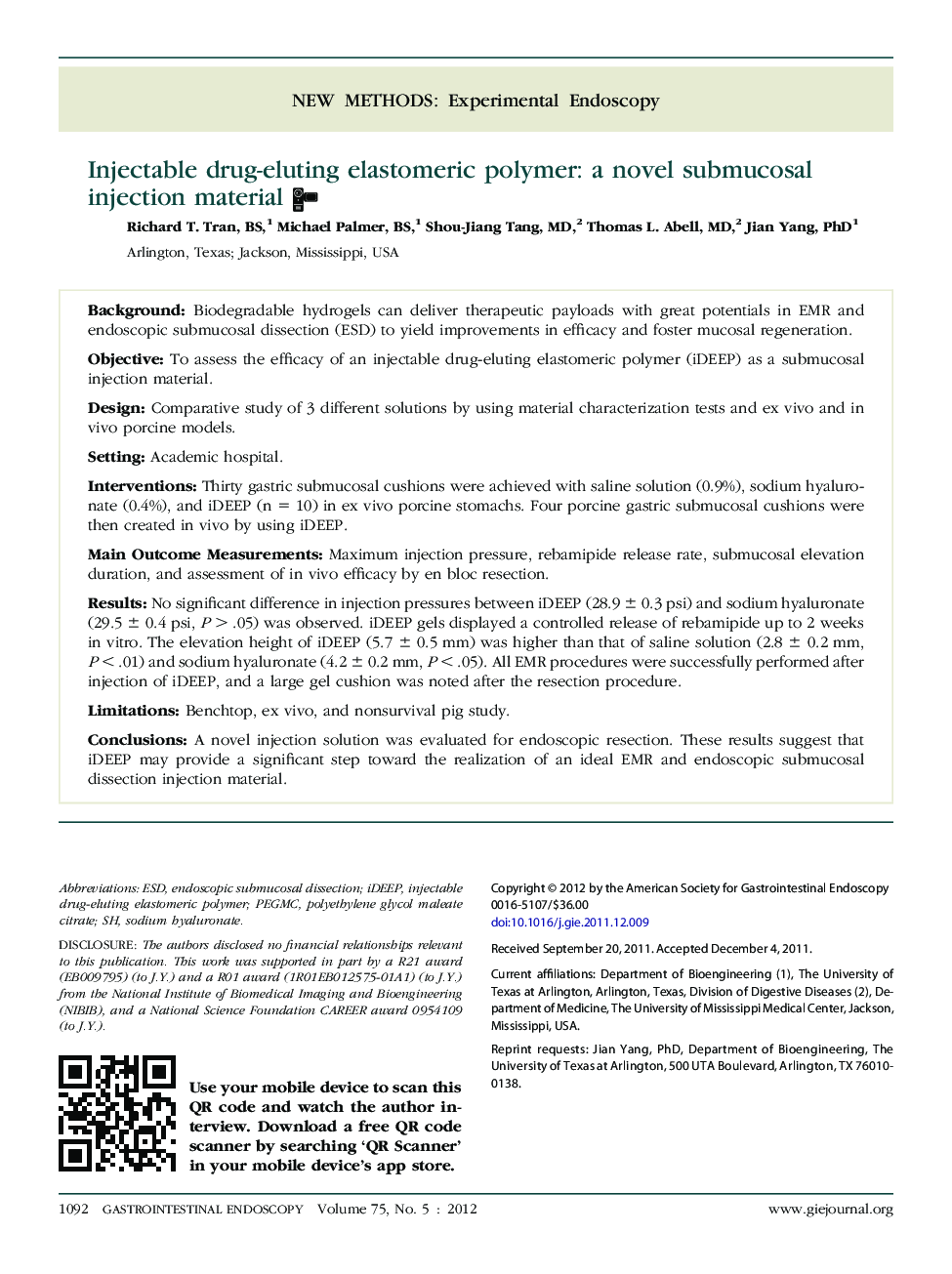| Article ID | Journal | Published Year | Pages | File Type |
|---|---|---|---|---|
| 3304959 | Gastrointestinal Endoscopy | 2012 | 6 Pages |
BackgroundBiodegradable hydrogels can deliver therapeutic payloads with great potentials in EMR and endoscopic submucosal dissection (ESD) to yield improvements in efficacy and foster mucosal regeneration.ObjectiveTo assess the efficacy of an injectable drug-eluting elastomeric polymer (iDEEP) as a submucosal injection material.DesignComparative study of 3 different solutions by using material characterization tests and ex vivo and in vivo porcine models.SettingAcademic hospital.InterventionsThirty gastric submucosal cushions were achieved with saline solution (0.9%), sodium hyaluronate (0.4%), and iDEEP (n = 10) in ex vivo porcine stomachs. Four porcine gastric submucosal cushions were then created in vivo by using iDEEP.Main Outcome MeasurementsMaximum injection pressure, rebamipide release rate, submucosal elevation duration, and assessment of in vivo efficacy by en bloc resection.ResultsNo significant difference in injection pressures between iDEEP (28.9 ± 0.3 psi) and sodium hyaluronate (29.5 ± 0.4 psi, P > .05) was observed. iDEEP gels displayed a controlled release of rebamipide up to 2 weeks in vitro. The elevation height of iDEEP (5.7 ± 0.5 mm) was higher than that of saline solution (2.8 ± 0.2 mm, P < .01) and sodium hyaluronate (4.2 ± 0.2 mm, P < .05). All EMR procedures were successfully performed after injection of iDEEP, and a large gel cushion was noted after the resection procedure.LimitationsBenchtop, ex vivo, and nonsurvival pig study.ConclusionsA novel injection solution was evaluated for endoscopic resection. These results suggest that iDEEP may provide a significant step toward the realization of an ideal EMR and endoscopic submucosal dissection injection material.
